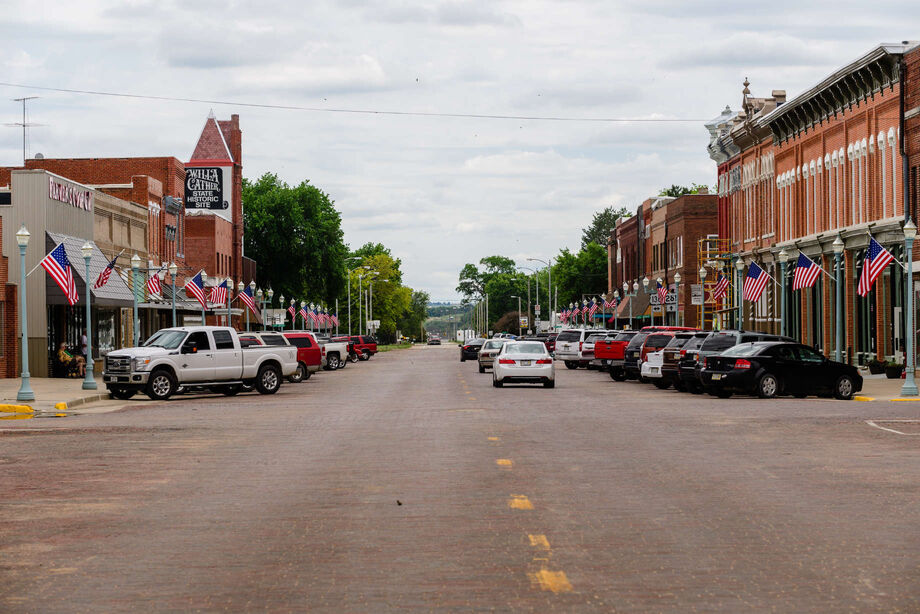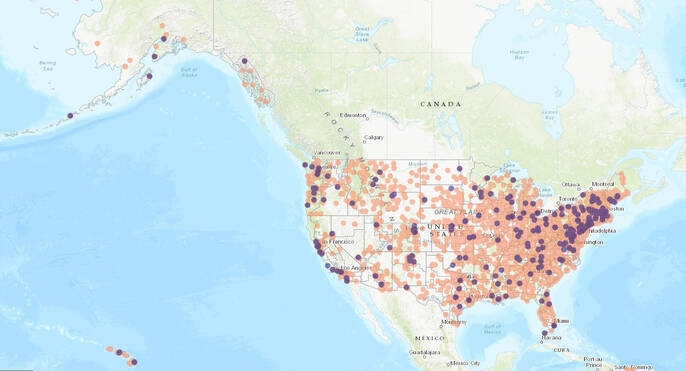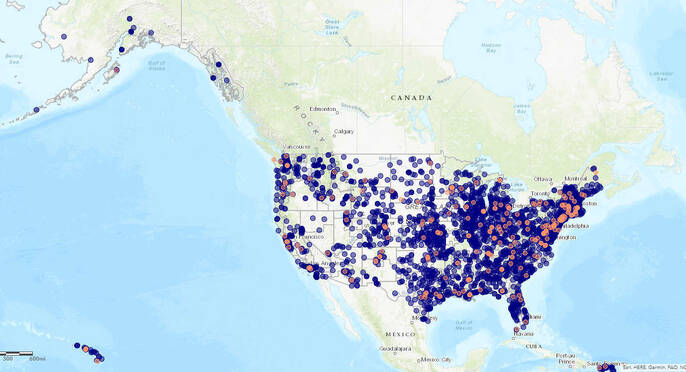
The Willa Cather Foundation’s historic sites play a prominent role in the town of Red Cloud, Nebraska. An NEH CARES grant supported significant portions of the Foundation’s work during 2020. Image: Downtown Red Cloud. Photo Credit: Robert Olsen. Photo courtesy of the Willa Cather Foundation.
Communities throughout the United States have faced enormous challenges as a result of the COVID-19 pandemic. During this time, NEH grantees have worked to support their regions and audiences. From pivoting to virtual programming to developing new initiatives, humanities organizations have adapted to continue bringing their communities together and providing access to humanities materials and experiences.
Million dedicated to supporting humanities organizations through the CARES Act.
Million dedicated to supporting humanities organizations through the ARP Act.
Federal support has proven essential to humanities institutions throughout the U.S. Through the NEH, the CARES Act of 2020 provided $75 million specifically for humanities organizations. With these funds, the NEH awarded economic stabilization grants to 317 humanities organizations, supporting thousands of jobs. Additionally, with the $30 million immediately distributed to them, the NEH’s partners at the state and jurisdictional humanities councils reached 4,175 organizations in the United States through small grants programs. And through the American Rescue Plan Act of 2021, the NEH was able to award $59 million to 292 humanities organizations. With $52.6 million, the state and jurisdictional humanities councils were able to make awards to 4,012 organizations. An additional $28.8 million was awarded to 495 humanities organizations and 120 individual fellows through subgranting institutions.
From the very beginning of the pandemic, NEH grantees adapted to support their communities during challenging times. When the Clemente Course in the Humanities shifted its nationwide programs online, the organization also purchased hotspots for its participants, who are low-income. Internet access proved key to not only continued participation in the course, but also to combating isolation during a time of social distancing. In Alaska, leaders of the N.N. Cannery History Project, who had recently developed an exhibition commemorating the Spanish Flu pandemic, were able to provide advice and historical context for the Bristol Bay local government.
Pivots to new program formats have helped sustain rural organizations and communities. In Homer, Alaska, the Pratt Museum used an NEH CARES grant to offer outdoor, physically-distanced tours, develop a 12-part radio series, and reach community members through online conversation programs. In Red Cloud, Nebraska, the Willa Cather Foundation moved its 2020 spring conference online, reaching new audiences, and it developed a virtual tour of its sites and a digital collections gallery. And on Maine’s Monhegan Island, the Monhegan Museum developed a digital exhibition, “World War II: On Island and Abroad.” The grants enabled each of these organizations to maintain multiple staff positions thereby supporting their local, rural economies in this time of crisis.
Community conversation programs have helped bring people together while offering opportunities to explore American history and culture. The Walter Anderson Museum in Ocean Springs, Mississippi offered online programs illuminating Southern history and culture. Ninety-five percent of respondents said they felt “a sense of connection between [their] experiences and/or heritage and those explored in this program.” The International Storytelling Center in Jonesborough, Tennessee, brought people together virtually to discuss local history through its “Freedom Stories: Unearthing the Black Heritage of Appalachia” project. Ninety-five percent of respondents to a program survey agreed that they were “able to see connections between themes explored in this program and contemporary issues.”
Grantees have built new skill sets, organizational capacities, and audiences that will continue to be a resource for years to come. The West Virginia Mine Wars Museum, located in Matewan, used NEH funding to digitize its collections and build out a robust online presence. The Museum of the Aleutians, located in Unalaska, Alaska, similarly digitized thousands of images from its photographic collections. The Heart Mountain Wyoming Foundation, located in Powell, purchased equipment and produced podcasts, videos, and online exhibitions with NEH support. And the B.B. King Museum and Delta Interpretive Center in Indianola, Mississippi made updates to its website and purchased software for online programming. For all of these remote and rural organizations, reaching virtual audiences is key to making their work accessible and broadening their impact. The ability to upgrade technologies will pay dividends in the years to come.

